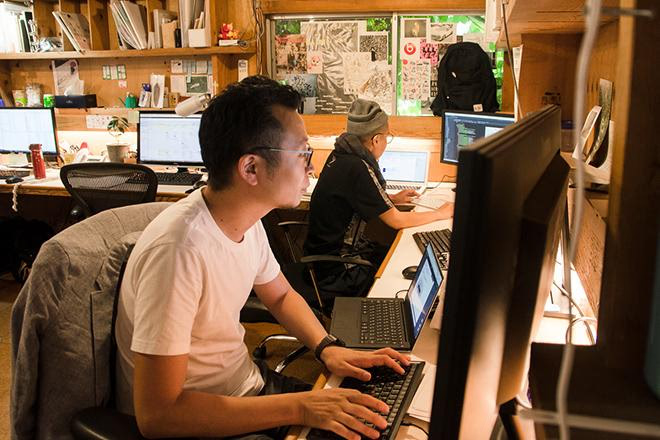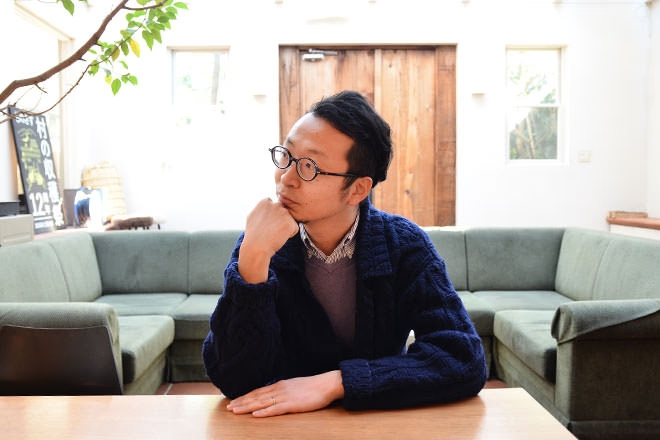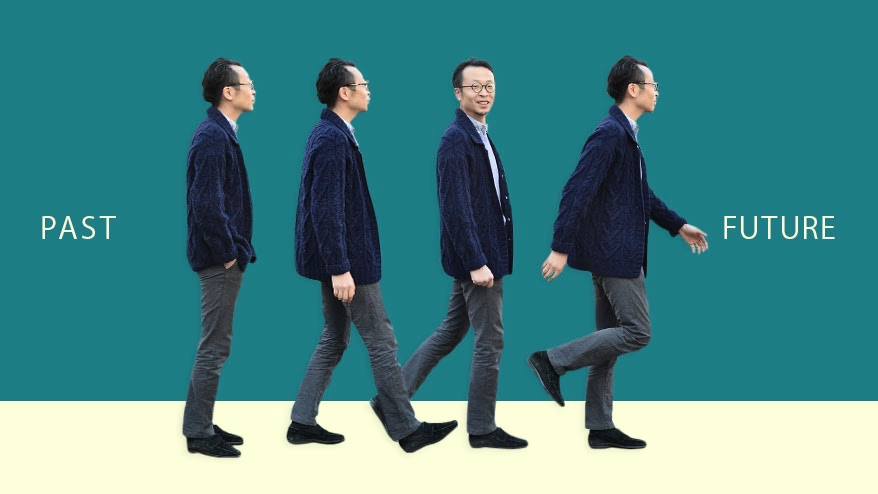こんにちは。Webマスターサポート部の松永です。
私はこれまで、アパレル、エンジニアなど様々な業種を経験してきて、現在は Web の仕事に就いて5年ほどになります。
日々の業務では、主にWebサイトの運用業務を行いながら、運用案件の窓口を担当。その傍ら BtoBコーポレートサイトのリニューアルのコーディングディレクターも行っています。1~2ヶ月規模のBtoBディレクション業務も行いながら、日々の運用業務にも対応しているため、なかなか忙しく過ごしています。
また、Javascript などのコーディングも行っています。コードを解析することも好きなので、コーディングファクトリー部が毎月開催しているコーダーミーティングにも参加させてもらい、いろいろと情報共有することを楽しみにしています。
日々の仕事はなかなかハードですが、自分としては苦しんで仕事をしているわけではないです。また、周りからは「ハードワークの割にモチベーションが続く人」と思われているフシがあります(笑)。
そういえばそうかもしれない、と自分でも思い、改めて「なぜ、Webの仕事に対するモチベーションが続くのか」振り返ってみることにしました。
「 Webってうまく使えば儲かるんだ」
手応えをつかんだ原体験
私が初めて Web サイトを作ったのは、今から約10年前。かつてルームシェアで一緒に暮らしていた隣人と、ペンライトのオンラインショップを作ったことがきっかけでした。
Web自体は学生の時から掲示板をつかったり、MSNメッセンジャーのチャットなどを主にやっていて、その後、オンラインゲームなどでそこそこ人並みに使っていましたが、自分でサイトを作成するなんて、当時は思ってもいませんでした。
最初のオンラインショップは、これまたルームシェアで一緒に暮らしていた「助教授」とよばれる人( Adobe を使える)にドリームウィーバーを使って作ってもらいました。しばらくはそのサイトで商売を続けていましたが、更新が必要になるたびに、助教授に連絡するのも大変だったので、「だったら自分でできまいか?」と、HTMLの本を買ってきて、独学でリニューアルしたことが、初めて Webサイトをデザインしてコーディングした時でした。
自分でWebサイトを手がけてみて最初に感じたことは、「 Webってうまく使えば儲かるんだ」ということでした。
ペンライトのオンラインショップは、他のペンライトよりも高品質・低価格で提供していたたため、それなりに売れました。(当時の自分には予想以上の収入でした)
同じ頃、「イベントや雑誌、テレビってどうやって儲けているんだろう?」ということにも興味があり、セミナーや集中講座で独自に学習をしていました。雑誌は広告と記事で出来ているけど、広告=お金がかかる、記事=ただで宣伝できる、ということも学びました。
そこで、ペンライトショップでも応用しようと思い、CPC広告(アドワーズ)を軽く打ちながら、オーガニック検索での SEO を徹底してみました。HTMLタグの重み付けや、url 文字列と検索順位の関係、title やメタ情報の重要性、外部リンクと内部リンクの施策などを実施。HTMLタグの重み付けでは、strong タグはキーワードに使い、bタグは単なる装飾として使うなどをし、検索でかかってほしいワードをできるだけ含めて、テキストを作成したりしました。
その結果、元々サイトの URL に商品名が入っていたこともあり、当時の SEO的には有利だったため、常に検索順位の 1~2位をキープすることができました。
思わぬきっかけで始めたWeb制作ですが、自分が作ったサイトを通して見知らぬ誰かが商品を買ってくれるという驚き、そこから利益が出るという手応え、仕組みを理解すればする程いろんなことが実現できる面白さに「Webをもっとやってみたい!」と夢中になりました。
しかし、ルームシェアを解消したことがきっかけで、ペンライトのオンラインショップは終了してしました。
「Web を仕事にしたい」という気づき

ペンライトのオンラインショップ終了後は、一旦 Web のことはすっかり過去のものとして別の仕事に就いていました。しかし、改めて自分の仕事を考えたときに、Webサイトを作ったときの楽しさや手応えを思い出し、「やっぱり自分に合っていたのかもしれない」と思い、改めて Web 業界への道を進み始めました。
まずは、半年かけて Web の学校で集中的に学習しました。
Web のカリキュラムとは別に、「フロントエンドを行うには Javascript は必須」と書かれたネットの記事を信じて、Javascript も独自に学習しました。また、もともと SEOの知識もあったので、解析は必須でしょという気持ちから、ウェブ解析士の資格もとりました。
その後、モノサスへ入社しました。
入社後は、当時の運用チームに配属され、最初はテキストの修正や、商品登録など、簡易な業務を行っていました。しかし、入社当時から、もっとガリガリコーディングしたり、Google Analytics などを使って解析を行いたい!と思っていました。すると、ひと月後くらいに、他チームのヘルプとして、サイトの修正業務に入ることになり、コーディングのチャンスが巡ってきました。
当初は、テキスト修正や余白の調整と聞いていましたが、実際には結構ガシガシ CSS の修正を行ったりしたので、ディレクターの中川に不備を叱責されつつも「こいつ意外とコーディングできる」という印象を与えられたのか、それから除々にコーディング業務が増えていきました。
その後、運用業務でも、LPのコーディングや、Javascript の改修、サイトのコーディング等にアサインされるようになってきて、SEOやWebの解析はそっちのけで、コーダー/コーディングディレクターとして経験を積んできました。
私はなぜ Webサイト運用を仕事としているのか

そんな今、「私はなぜ Webサイト運用を仕事としているのか」について、改めて考えてみました。
一番に出てきたのは、あの、ペンライトのオンラインショップで感じた「Webってうまく使えば儲かるんだ」という気持ちです。
私は現在、クライアントからの作業指示をもとに制作をする立場にいますが、「なるほどこうやってキャンペーン打つんだ」とか「ここにもバナー出すともっと周知できそう」など、ただ制作を行うだけではなく、PR施策についても無意識に頭のなかで考えていることがよくあります。
また、制作をすすめる中で、「このボタンはもっと上にあったほうが便利に使えます」とか「一覧ページにバナーを貼ったほうが訴求できますね」など、クライアントへの提案も必要に応じてやっているな、ということにも改めて気づきました。
つまり今の運用業務でも、制作しているページをうまく使ってエンドユーザーに好印象を持ってもらい、儲けることができないかと考えていたのです。もちろん、儲けるといっても自分ではなく、「クライアントのビジネスの助けをしたい」という気持ちです。それが自分のモチベーションになっているんだなと結論づけました。
運用業務こそ、クライアントのビジネスを手助けできる最も近い立場にいると思います。
すでに施策がすでに練られていたとしても、本来クライアントが叶えたい要件は何なのかをしっかりと確認しながら、時には指示とは異なる提案を行うなど、本来の要件を満たす最適な手法を技術的に考えて実現できるように、自分自身を成長させながら仕事をしていきたいです。

